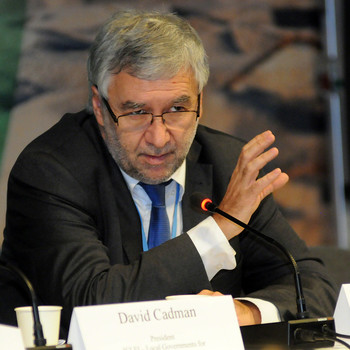
By Ronan Dantec, UCLG spokesperson on climate and City Councilor for Nantes, France, in the framework of the COP 19.
Substantial energy for a foreseeable result. In Warsaw, the usual dramaturgy of climate conferences allowed for some to show their muscles and their resistance to a lack of sleep, two years before the key meeting in Paris.
The stakes at play in Warsaw were foremost to avoid failure. The agreement found in the application text of the Durban Protocol on the commitment proposal of each country to reduce emission for the first trimester of 2015, without defining precise constraints, was entirely consistent with the great tradition of UN agreements. The Europeans this time avoided naming developed countries as unique contributors to the reduction effort and France has an acceptable calendar to prepare a conference that should find a way to move away from the usual COP structure, whose cumbersomeness is one of its key difficulties.
Among the substantial advances, the importance of the role of cities and sub-national authorities was, for the first time in the history of the conference, highlighted in an operational chapter on reinforcing their capacity for action, with a paragraph in the text on application of the Durban Protocol. By integrating, during the high-level segment, the organization of an event on local government, opened by the UN Secretary General, Mr. Ban ki-moon, this COP will be considered by the local authority associations mobilised in this negotiations, an important moment of recognition of the key roles of cities and regions in reducing global greenhouse gas emissions and in adapting their territories. This step forward should be confirmed during the Paris 2015 conference, in particular in the mobilization of financing.
Nevertheless, if the Warsaw compromises open the way to Paris, a great number of difficulties still lay before us... lack of commitment on financing from industrialized countries, systematic opposition from the new Australian government, withdrawal of Japan, strong reservations from the big emerging countries to commit to their own emission reduction, lobbying from carbon industries... the obstacles and the opposing forces to an ambitious agreement were also put on the table in Warsaw.
The road to Paris 2015 is more than ever littered with potholes, but the trap stage of the Polish COP is behind us. By finding the means to create new dynamics, by highlighting the multiplying positive realities, by taking support from the determination of civil society, and by better linking to the 2015 development agenda, absent in Warsaw, France can succeed in finding an agreement in Paris that will move away from the climate-fatalism that will condemn the XXI century to terrible human disaster.










